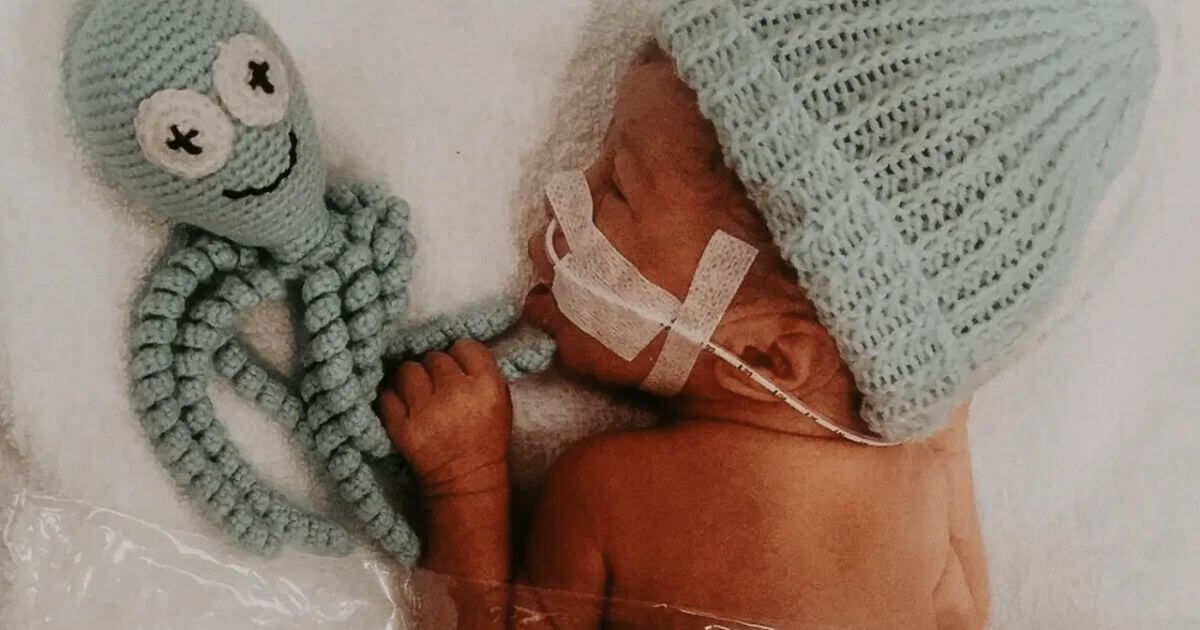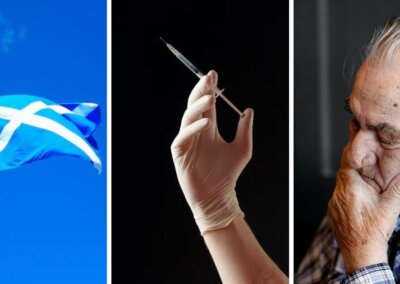A mum of a premature baby has explained that octopus teddies are being used to help distract babies born prematurely from tugging on their monitoring equipment.
Premature babies often need hospital treatment, sometimes for a long time, before they are able to go home with their parents. This means they often have a lot of wires monitoring their condition, a feeding tube and other bits of medical equipment, and it’s simply too much temptation for these little fighters to leave it all alone.
Things were no different for baby Nahla. Taking to Instagram, her mum explained “I wish I had known about these when (daughter) Nahla was taken to NICU straight after birth”.
“Small octopuses and jellyfish are knitted by groups such as Octopuses for a Preemie in such a way that the tentacles feel like an umbilical cord. The octopuses are placed in incubators or cots with preterm bubs [babies], allowing them to grab onto the tentacles”.
“While (in utero), bubs grab their cord, which this teddy is designed to mimic. As a result, bubs will leave their cords, monitoring lines and wires alone because they’re too busy holding the tentacles.”
“Octopus teddies aren’t just cute; they have a purpose”
Octopuses can also be really comforting for parents who cannot stay with their children in intensive care units 24/7. “If you know your bub will be born preterm… you can ask for one of these teddies and pop it down your shirt”, advises Nahla’s Mom.
“This is to make the teddy smell like you, which will then stay with bub after they’re born and go home with them after discharge”. For her, the hardest thing was letting someone else take care of her little baby girl.
“So having something like this that would’ve smelt like me and given her comfort would’ve improved my mama guilt dramatically by knowing that, even though we weren’t together, a little piece of me was still right there with her”.
The charity Octopus For A Preemie UK regularly donates small octopus and jellyfish teddies to NHS hospitals.
“Parents need a break to catch their breath and to have a rest so they can carry on looking after their little bundle of joy, knowing their tiny baby will get comfort in holding the octopus tentacles instead of pulling those life-saving tubes and cables out”, explains the charity.
Premature baby survival rates
Octopus teddies provide support and comfort for parents and their premmies whose prospects are improving all the time. Last year, Dr Edward F Bell of the University of Iowa published a study called ‘Mortality, In-Hospital Morbidity, Care Practices, and 2-Year Outcomes for Extremely Preterm Infants in the US, 2013-2018’. He found that from 2013 to 2018, with infants born between 22 and 28 weeks gestation, “survival to discharge occurred in 78.3% and was significantly improved compared with a historical rate of 76.0% among infants born in 2008-2012”.
The study was conducted among 19 academic medical centres across the US and analysed 10,877 infants born between 22 and 28 weeks gestation.
This means that four out of five extremely prematurely born babies survived and were able to be assessed at 22-26 months corrected age (22-26 months from their due date) for a number of health and functional outcomes.
Right To Life spokesperson, Catherine Robinson, said “It’s so encouraging to see how well preterm babies are doing now. These little fighters are a sign of hope for all of us”.












